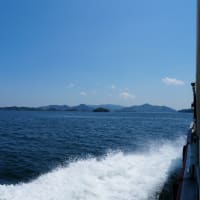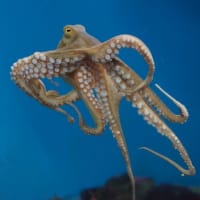The following is from the serial column of Masayuki Takayama, who brings the weekly Shincho released today to a successful conclusion.
This article also proves that he is the one and only journalist in the postwar world.
We want our own army.
No country, let alone the Japanese, likes to see its neighbors become stable and prosperous.
In the 19th century, the United States appointed Joel Poinsett as its ambassador to Mexico.
His mission was to foster rebellion and start a civil war.
But just when he was about to do so, it exposed the plot.
Anyone who helped Poinsett was executed, and he escaped in a heap.
The souvenir was a wildflower whose leaves turn red around Christmas time.
It became so popular in the U.S. that it was named the poinsettia after him.
His successor as ambassador also tried to induce civil unrest.
A few generations after him, Ambassador Henry Wilson finally succeeded in instigating General Huerta to stage a coup d'etat.
The president, Madero, was killed, and it sent his wife and children to execution.
Mrs. Madero turned to the Japanese minister, Kumaichi Horiguchi, who protected her and her men.
When the troops surrounded the legation, Horiguchi spread a Japanese flag on the entrance floor and shouted.
"Prepare to go to war with Japan, defeat me, step on the flag, and break-in!"
Cowed by his unmistakable determination, the troops retreated.
Horiguchi met with Huerta and got his approval to send his wife and others to the asylum.
At the time, Japan was known as a mighty country that had crushed the strongest Russian army and sunk all 12 of Russia's armored battleships, which were considered unsinkable.
It is said that war is a form of politics conducted by other means.
Diplomacy is nothing less than a political act at its cutting edge.
Huerta was sufficiently pressured by the spirit of Kumanichi and the "strong Japan" that he could see behind him.
"Senor, what can I complain about?"
However, the Imperial Japanese Army and Navy, which had become the backing of diplomats, were abandoned by the MacArthur Constitution after the war.
The only thing left for diplomats to do was to be spirited. Still, Kijuro Shidehara, who became prime minister by GHQ, adopted a new line of thinking: "Diplomacy must be soft."
When the U.S. asked him to cut off the Anglo-Japanese alliance at the Washington Conference, he responded by saying that international cooperation was more important than the national interest.
"Diplomacy is as the white man says. Don't fight, concede." It was his Motto.
Thus, post-war Diplomacy no longer required spirit.
It became visible was the attack on Singapore by the Japanese Red Army and the Palestinian guerrilla PFLP after the Mishima Seppuku incident.
Ambassador Tokichiro Uomoto sought to release the hostages to the criminal who threw a bomb and took five locals hostage.
He was told, "Then you should take their place."
There was the Yodo-go incident before.
Yamamura Shinjiro, Vice Minister for Transport, negotiated with the Japanese Red Army, which had hijacked a Japan Airlines plane, and offered to take the place of the passengers.
He flew to North Korea and fulfilled his great responsibility, and made a man of himself.
The Japanese Red Army offered to give him that opportunity.
But Uomoto refused. "It would be a violation of soft Diplomacy."
Fed up with the stalemate, a detachment of the PFLP attacked the Japanese embassy in Kuwait.
Ambassador Yoshitaka Ishikawa hid in the changing room of a female staff member.
When he was found, he called his home ministry in tears, begging for help.
The Japanese embassy moved to a safe zone before the Iraq war had even begun to smoke.
There was even a time when Foreign Minister Yoriko Kawaguchi made them return, saying, "it was too soon."
The diplomats had long since abandoned their spirit and determination.
The other day, Tenseijingo wrote that after the Japanese embassy in Kabul withdrew early, "the British ambassador remained alone and continued to sign exit visas for Afghan collaborators" and "at the last minute, he returned home on a British military plane."
He continues, "It is incomprehensible" that Japan, without its own troops, fled without leaving its local staff behind.
Do you say that? You hate war and the sound of military boots.
You have been telling hoity-toity style for 70 years that Japan should comply with Article 9.
You've been saying that soft Diplomacy is okay, and you've been writing in the paper that we should be friendly to China, Korea, where nothing can be.
Isn't it more incomprehensible to criticize diplomats who have done precisely that now?
The era of GHQ is over.
Why don't you tell them plainly that you want your own army and that diplomats should have some spirit?
最新の画像[もっと見る]
-
 It was a popular page yesterday, 2018/9/8.
9分前
It was a popular page yesterday, 2018/9/8.
9分前
-
 It was a popular page yesterday, 2019/9/8.
14分前
It was a popular page yesterday, 2019/9/8.
14分前
-
 It was a popular page yesterday, 2020/9/8.
19分前
It was a popular page yesterday, 2020/9/8.
19分前
-
 It was in the top 50 searches for the past week of 2021/9/8.
24分前
It was in the top 50 searches for the past week of 2021/9/8.
24分前
-
 It was a popular page yesterday, 2021/9/8.
26分前
It was a popular page yesterday, 2021/9/8.
26分前
-
 It was in the top 50 searches for the past week of 2022/9/8.
29分前
It was in the top 50 searches for the past week of 2022/9/8.
29分前
-
 It was a popular page yesterday, 2022/9/8.
31分前
It was a popular page yesterday, 2022/9/8.
31分前
-
 It was in the top 50 searches for the past week of 2023/9/8.
34分前
It was in the top 50 searches for the past week of 2023/9/8.
34分前
-
 It was a popular page yesterday, 2023/9/8.
36分前
It was a popular page yesterday, 2023/9/8.
36分前
-
 It was in the top 50 searches for the past week of 2024/9/8.
41分前
It was in the top 50 searches for the past week of 2024/9/8.
41分前









